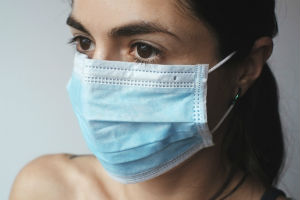Expert comment: COVID-19 'delay' measures discussed for UK
09 March 2020

An emergency Cobra meeting is taking place today (Monday) to discuss whether the government should trigger measures fosuced on delaying the spread of COVID-19 in the UK.
This follows the third death in the UK connected with the coronavirus outbreak, which has raised questions about whether continuing to try and contain the virus is an effective approach.
This could involve 'social distancing' measures, such as telling people to work from home, staggering commuting times to limit contact on public transport, closing schools and preventing large public gatherings, including at sporting events.
Dr Simon Clarke, associate professor in cellular microbiology at the University of Reading, said:
“The weekend's developments in Northern Italy mark a worrying change in how health authorities are trying to halt the spread of Covid19. The shift away from self-isolation of those who are potentially infected towards more draconian measures, is redolent of the situation in China.
“In the UK, we may see a move towards stricter controls on people's movements, but it's important for these to be objective and evidence-based. We must avoid ‘Something must be done, this is something, so let's do it’ scenarios.”
Dr Al Edwards, Associate Professor in Biomedical Technology at the University of Reading, said:
“We are all trying to understand this outbreak, and on global, national and personal level work out how to respond. But this is challenging as the information available is changing so fast. What we can glimpse from the rapidly changing numbers is the level of uncertainty about how an outbreak happens.
“At the moment we are using one type of test for the virus (called RT-PCR), which is very powerful but has some limitations. This test can detect the virus (by detecting viral RNA) incredibly sensitively and specifically. But it can only give a positive result when the virus is present.
“What is urgently needed is a second type of test - often called an ‘antibody test’. This test will be able to detect that the person has been infected in the past. This is important because we currently don’t always know how certain patients became infected. For example, patients who haven’t travelled to affected areas, or met with anyone returning from an infected area.
“These tests have already been successfully used in Singapore to identify – and isolate – a ‘missing link’ individual who had not been detected as suffering from COVID-19 disease and never tested positive with the RT-PCR test. The Singapore science and healthcare team were also able to identify possible contacts who might be unexpectedly at risk of infection.
“We at Reading – and many others around the world – are working hard to urgently develop such antibody tests. They can be harder to develop, but are extremely important to fill the gaps in our understanding.
“This type of test could start to answer some of the most pressing questions such as how many people with very mild symptoms might be missed from containment and contact-tracking methods. They will also become vital as soon as new experimental vaccines become available for testing.”
Professor Chris Newdick, medical law expert at the University of Reading:
“NHS austerity has created over 40,000 nursing vacancies and 8,000 doctor vacancies. Add to that the number of clinicians who will be off sick with Covid-19, and the additional patients needing NHS care, and you see the problem.
“More patients than ever are already breaching NHS Waiting Time targets, so there is much worse ahead. New methods of working will almost certainly be needed; but resource scarcity on this scale does not have a quick fix.”
Professor Marina Della Giusta, behavioural and labour economist at the University of Reading, said:
“Working mothers are likely to end up being shock absorbers as they will have to combine remote work with the effects of school closures and required higher hygienic routines. Surveys show women are still overwhelmingly responsible for organising childcare and house cleaning in the UK. For some this will be exacerbated by having to care for non-resident elderly family members who will be advised not to leave their houses, and who may under normal circumstances have been care providers for their grandchildren.
“This amounts to a massive natural experiment that might well change social norms around. The efficiency of remote working, commuting and importance of face-to-face meetings will be tested, which will make companies think even more about the costs of renting office space and travel to work subsidies.
“It will also test the capacity of the NHS to deal with crisis, the capacity of government to deal with crisis, the extent of health inequality, trust in government and in institutions, trust in expertise and networks of support within communities.”
